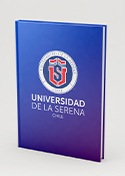Hyperreduced-order modeling of thermally coupled flows

Date
01-01-2024
Journal Title
Journal ISSN
Volume Title
Publisher
ELSEVIER SCIENCE INC
Abstract
This article presents a full and reduced-order methodology based on the finite element method that allows the characterization of convective-dominant conjugate heat transfer flows. Reduced-order modeling (ROM) allows the description of several degrees of freedom problems, referred to as full-order modeling (FOM), through a reduced-order surrogate representation based on a Petrov-Galerkin projection onto a reduced subspace. The FOM and ROM problems are stabilized through the Variational Multi-Scale (VMS) method, which ensures stability in dominant convective problems and allows equal interpolation spaces for the pressure, velocity, and temperature. The proposed methodology is validated solving natural heat convection in a differentially heated square cavity, considering air as the working fluid and Rayleigh numbers in the interval 10(4) <= Ra <= 10(8). In this problem, the benefit of using a ROM approximation for the three unknown fields, i.e., velocity, pressure, and temperature, is compared against ROM approximation only in the velocity and pressure fields and a FOM type approximation for temperature. The benefit of using mesh-based hyperreduction and its computational performance and precision are also analyzed. Subsequently, the method simulates a conjugate heat transfer problem that includes natural heat convection, allowing the inclusion of different rheologies between the working fluids. The results verify the precision and speed up of the calculations by more than three hundred times with respect to the time necessary to solve a full-order formulation, emerging it as a great potential tool in the resolution of thermally coupled flows.
Description
Keywords
CONJUGATE HEAT-TRANSFER, FINITE-ELEMENT FORMULATION, NATURAL-CONVECTION, SQUARE CAVITY, NUMERICAL-SIMULATION, REDUCTION, NUMBER, SCHEME, AIR, 2D